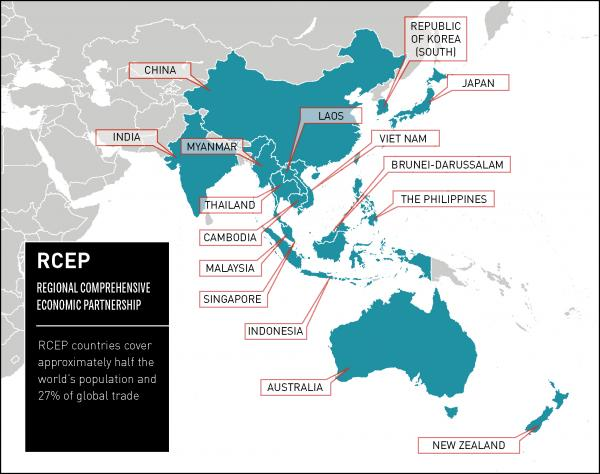Leaders of 15 countries from east Asia and the Pacific, led by China, Japan and the Association of Southeast Asian Nations (Asean), have agreed in Thailand to sign the Regional Comprehensive Economic Partnership (RCEP) trade agreement next year.
But India who has been present for the past seven years of trade negotiations opted not to join the RCEP agreement next year, saying they need to protect their service workers and farmers from onslaught of cheaper goods from China.
Aside from the ten Asean members — Brunei, Cambodia Indonesia, Laos, Malaysia, Myanmar, the Philippines, Singapore, Thailand, Vietnam — other countries joining RCEP are China, Japan, South Korea, New Zealand and Australia. They make up 2.23 billion people.
If India joins in the future, RCEP could be the largest trading bloc in the world, with a third of the global economy and half of the world’s population in its ambit.
“India has significant outstanding issues, which remain unresolved,” a joint statement from the 15 leaders reads.
“All RCEP Participating Countries will work together to resolve these outstanding issues in a mutually satisfactory way. India’s final decision will depend on satisfactory resolution of these issues,” the leaders’ statement added.

Notably out of the trade bloc is world’s superpower, the United States. Recently, Asian leaders have expressed dismay over the seemingly increasing protectionist sentiment coming directly from US President Donald Trump.
China has been pushing for the conclusion of the RCEP agreement as it would dominate Asia’s markets and infrastructure, and take a better leverage against US on its ongoing tariff war.
Finance Secretary Carlos Dominguez III attended the RCEP Summit in Thailand, in lieu of President Duterte.



